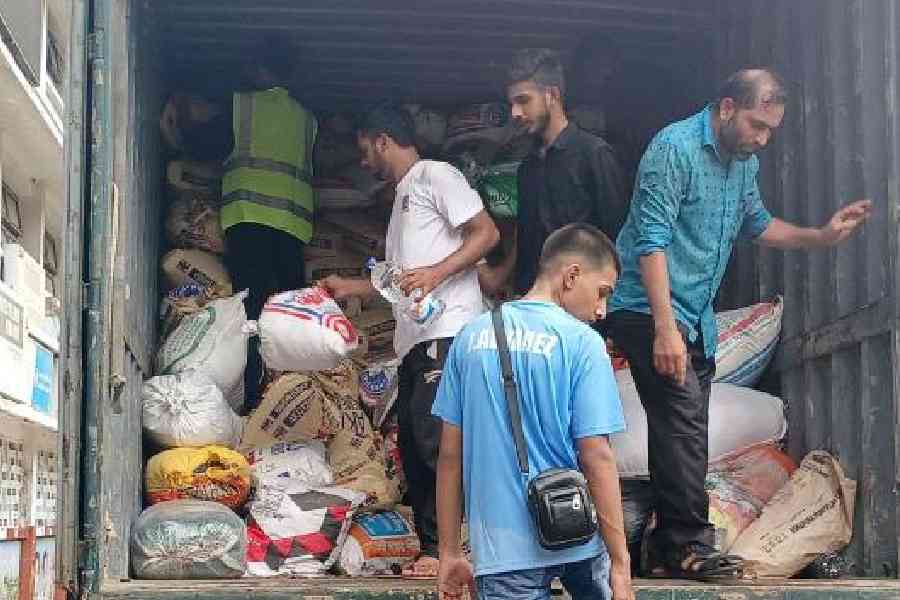The Reporters without Borders (RSF) has condemned the “outrageous” charges of crimes against humanity brought against at least 25 journalists in Bangladesh and urged the interim government led by Muhammad Yunus to bring an immediate end to the systematic judicial harassment of journalists in Bangladesh.
In a strongly worded statement, the organisation, whose headquarters are in Paris and which acts for the freedom, pluralism and independence of journalism and defend those who embody these ideals, has sought the immediate release of the arrested reporters, Farzana Rupa and Shakil Ahmed, and dropping of the “unfounded” accusations.
Rupa and Shakil, charged with the murder of demonstrators, are already behind bars. The husband-wife duo are among the 25 journalists against whom “crimes against humanity” charges have been pressed in connection with the death of a protester during the anti-quota movement, which brought about the downfall of the Sheikh Hasina regime.
The case is examined by the International Crimes Tribunal, a special court set up in 1973 to judge abuses committed during Bangladesh’s war of independence in 1971.
“The complaint lodged on 29 August for crimes against humanity marks a new stage in the series of lawsuits targeting media professionals that have emerged over the past ten days,” read the statement.
Amid recent reports of a spate of attacks on journalists, hostile takeover of media houses and sacking of journalists, the RSF statement adds to the embarrassment for the new regime which is struggling to grapple with lawlessness, attacks on minorities and forceful resignations of judges, civil servants and teachers.
“During the days of Martial Law, there were a lot of dos and don’ts for us... We were not allowed to report on strikes, but we have found out ways to circumvent those guidelines. Right now, there are no guidelines as such, but the all pervasive attacks have created a sense of fear and journalists are scared to report freely. The fear is so palpable that ordinary people are thinking twice before writing anything on social media,” said one of the 25 journalists.
“We never saw such a brutal attack on freedom of expression in Bangladesh,” the veteran journalist went on, adding how lawlessness has created an environment of panic and affected freedom of expression at large.
The RSF statement highlighted this sense of panic among the scribes by mentioning that it has information that most of the media professionals named in the complaint have left their homes for fear of arrest.
The murder charges against journalists seem to be part of a larger agenda of implicating people, especially with those who had connections with the Hasina-led Awami League regime, in legal cases in Bangladesh.
At least 268 cases have been filed against 1.94 lakh people since the fall of the Hasina regime. In its report, rights body Manabadhikar Shongskriti Foundation (MSF) said, 26,268 people — including ministers, civil servants, army officers, judges, civil society members and journalists — were named and around 1.68 lakh others were unnamed in these cases.
“... Media professionals are bearing the brunt of the need for vengeance that permeates this terrible legal cabal, which is hurting the image of the political transition underway in Bangladesh. The interim authorities, headed by Nobel Peace Prize laureate Muhammad Yunus, must do everything in their power to end this vicious process,” said Antoine Bernard, RSF’s director of Advocacy and Assistance.
The journalists named in criminal cases include Nayeemul Islam Khan, former press secretary to Hasina, Iqbal Sobhan Chowdhury, former information affairs adviser to Hasina, former National Press Club president Farida Yasmin and former general secretary Shyamal Dutta, Ekattor Television editor-in-chief Mozammel Babu, Bangladesh Pratidin editor Nayeem Nizam, former Samakal editor Abed Khan, ATN News’ head of news Provash Amin, DBC TV’s editor Zayadul Ahsan Pintu, former editor-in-chief of ATN News Munni Shaha, and presenter at Channel I, Soma Islam.
A source in Dhaka said that a section in the interim government conveyed their displeasure with the targeting of journalists during a meeting that Yunus held with his team of advisers following which Asif Nazrul, the legal adviser to the regime, faced some uncomfortable questions.
“The legal adviser said that he couldn’t interfere with the judicial process if someone lodges complaints against some people... Some others present at the meeting stressed on the need for proper investigation before slapping serious charges like murder on journalists,” said the source.
Some of the leaders of the Anti Discrimination Student Movement, who brought the change in Bangladesh, have also begun raising their voices against the spate of cases against journalists.
“We are not in favour of fabricated cases that are lodged against people to harass them... And we want a society, where there is full freedom of expressions,” said Asad Ronny, one of the co-ordinators of the forum.

